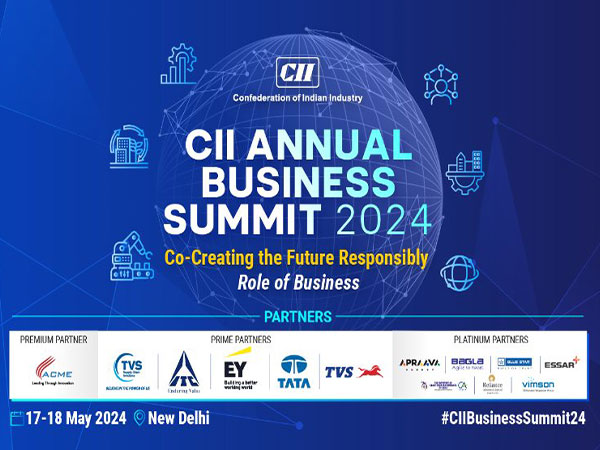'Meeting global standards, fostering innovation, investing in basic education are keys to progress in global value chains'
During the Annual Business Summit 2024 of the Confederation of Indian Industry (CII), the session on 'Mapping India's ascent in the Realignment of GVCs' emphasised the importance of enhancing ease of doing business, meeting global standards, fostering innovation, and investing in basic education as crucial building blocks for ensuring India's progress in global value chains.

- Country:
- India
During the Annual Business Summit 2024 of the Confederation of Indian Industry (CII), the session on 'Mapping India's ascent in the Realignment of GVCs' emphasised the importance of enhancing ease of doing business, meeting global standards, fostering innovation, and investing in basic education as crucial building blocks for ensuring India's progress in global value chains. The session was moderated by Chief Economic Advisor, Dr. V. Anantha Nageswaran. Highlighting the potential of India's auto sector in deepening its footprint in the global value chains, Guruprasad Mudlapur, MD, Bosch India, stated that India's significant expertise in software development, along with a substantial share in service exports and advanced technologies & R&D efforts could be leveraged to develop software-defined vehicles, thereby contributing to the evolution of the global value chain in the auto sector.
Sunil Mathur, MD and CEO, Siemens India, highlighted the evolving nature of GVCs, stressing the need for integration across countries with a focus on sustainability, particularly decarbonisation and circularity. He emphasised the shift towards technology-driven manufacturing, citing Industry 4.0 and digitalization as key drivers of enhanced productivity and quality. While India faces challenges in land acquisition, labour flexibility, and taxation reliability, leveraging its vast domestic market and prioritising innovation can facilitate deeper integration into GVCs, ensuring competitiveness on a global scale, he further noted. Emphasising the fact that trade tensions and technological advancements are reshaping GVCs, Deepak Shetty, CEO and MD, JCB India Limited, underscored the fact that India's strategic location offers access to key markets, driving FDI in sectors like automobiles, construction equipment and agriculture. He, however, stressed India's need to align with and continuously improve global quality standards. He further elaborated on the pivotal role of the MSME industry in ensuring supply chain resilience.
Highlighting the existing opportunity for Indian manufacturing on the global stage amid global shifts, Banmali Agrawala, Senior Advisor, Tata Sons Private Limited, noted that for India to move up the value chain and participate extensively in GVCs, there is a need to have a more systemic and greatly process driven approach while focusing on competing on quality rather than cost. He further added that while the country's biggest advantage lies in the size and scale of its workforce, the critical factor for success is ensuring they possess fundamental basic education and discipline. (ANI)
(This story has not been edited by Devdiscourse staff and is auto-generated from a syndicated feed.)
ALSO READ
Himachal Pradesh's Drive for Water Sustainability
Real Estate Must Champion Sustainability, Says Bhupender Yadav at CREDAI Meet
Revitalizing Indian Agriculture: AI and Sustainability Lead the Way
ADB Invests GEL 41M in Georgia’s First Sustainability-Linked Bonds for Green Mobility
Viraj Profiles Leads Stainless Steel Industry Towards 'Near Zero' Sustainability










